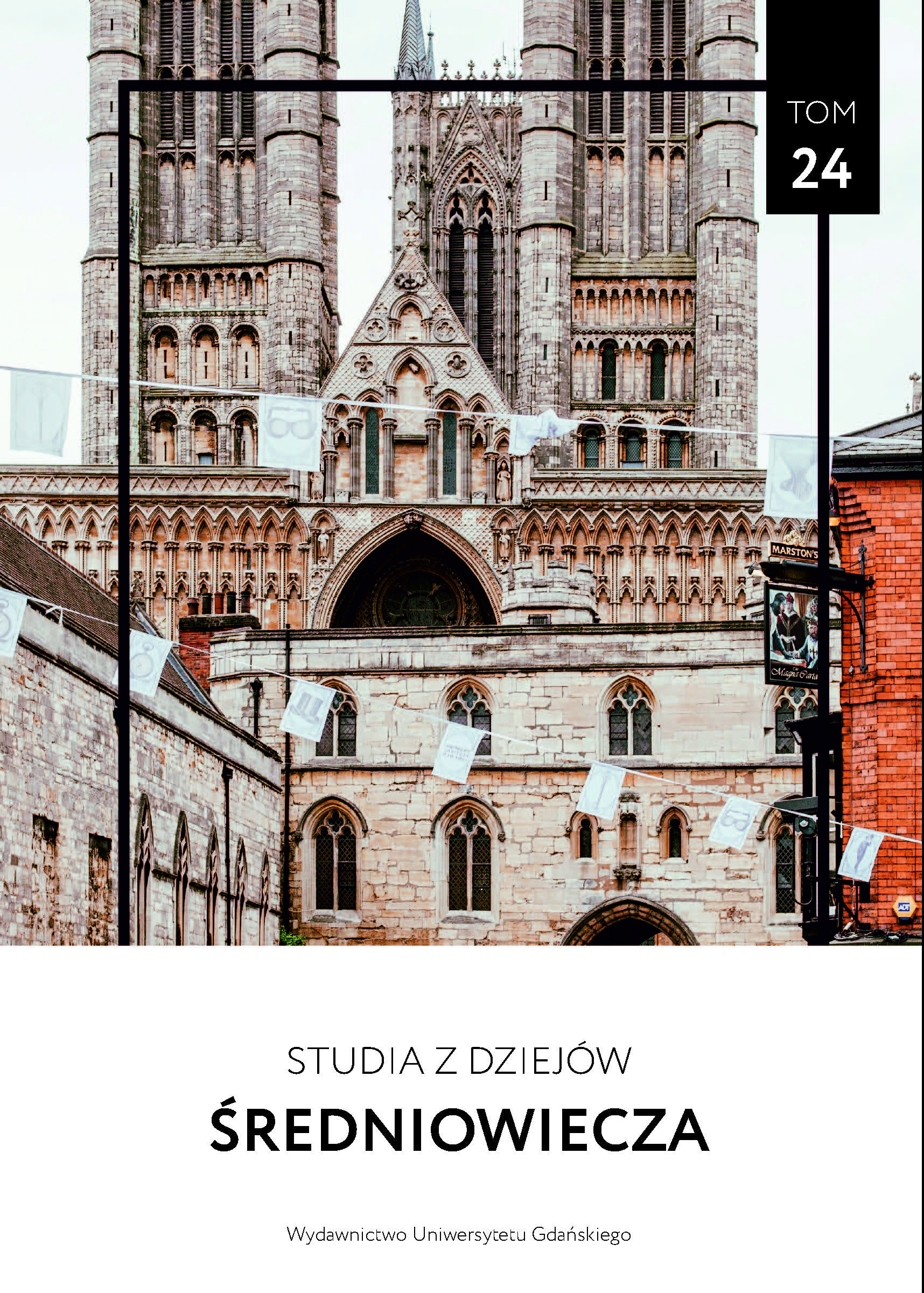Władysław Łokietek wiosną 1296 roku w Wielkopolsce po zabójstwie króla Przemysła II
Władysław Łokietek in Spring 1296 after the Murder of King Przemysł II
Author(s): Błażej ŚliwińskiSubject(s): History, Middle Ages, 13th to 14th Centuries
Published by: Wydawnictwo Uniwersytetu Jagiellońskiego
Keywords: Władysław Łokietek; Przemysł II; Henryk głogowski; the Krzywiń Treaty
Summary/Abstract: The article discusses the issue of the attitudes of the magnates and knights of Greater Poland at the time of the accession of Władysław Łokietek to power in February 1296, immediately after the murder of King Przemysł II. On the basis of an analysis of the positions of witnesses to the peace treaty concluded in Krzywiń by Duke Władysław with Henryk of Głogów, who at that time was attacking Greater Poland, an attempt is made to show that there was a reluctance to continue warfare on the part of the leading magnates of Greater Poland. They were accustomed under the reign of Przemysł II to solving disputes above all by diplomatic means, and had exploited the extended period of peace on their territories to build up their economic might. The halting of the forces of Henryk of Głogów marching on Poznań took place on the approaches to the land of one of the most important officials of Greater Poland, the voivode of Kalisz, Mikołaj of the Łodzia family, who was acting in collaboration with the Bishop of Poznań, Jan Gerwardowic of the Leszczyc family, whose nearby estates had already suffered initial destruction. The article argues that it was the attitude of the leading magnates that forced Władysław Łokietek to conclude a peace with Henryk of Głogów and to cede him territory beyond the River Obra. It rejects the hitherto dominant view in Polish history writing that Władysław Łokietek gave way before his opponent’s military might, and that the concessions made towards Henryk lost Łokietek the trust of the local magnates right at the beginning of his reign in Greater Poland. The author of the essay also does not share the opinion that those leading magnates, who earlier had supported Przemysł II’s plans to unite the Polish lands around this area, were faced with a vital and urgent question about the future of this very policy once the treaty of Krzywiń was concluded. He believes that the leading magnates of Greater Poland acted at that moment out of typically personal motives and were not concerned with broader issues.
Journal: Studia z Dziejów Średniowiecza
- Issue Year: 2020
- Issue No: 24
- Page Range: 265-294
- Page Count: 30
- Language: Polish

